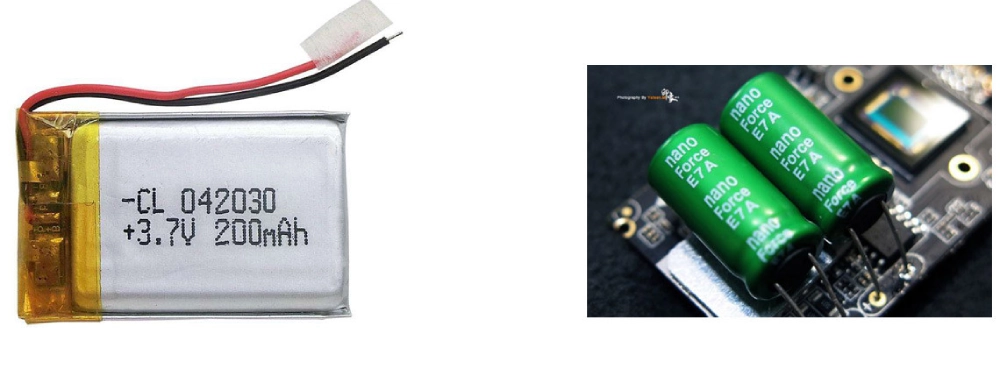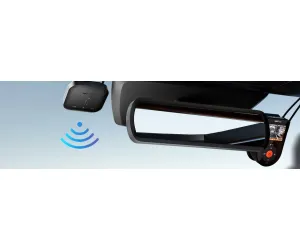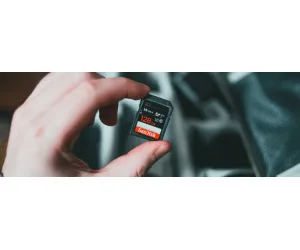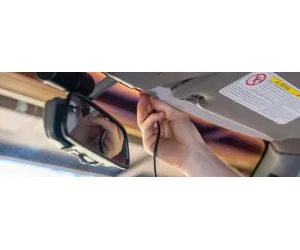
When selecting a dash cam, one crucial factor to consider is its power source. Most dash cams use either lithium-ion batteries or supercapacitors, each with distinct advantages and drawbacks. Recently, many mid- to high-end dash cams have adopted supercapacitors for their superior durability and safety. This article explores the differences between these two power options to help you decide which suits your needs best.
Lithium-Ion Battery
Lithium-ion (Li-ion) batteries are popular in various devices due to their high energy density and lightweight design. They are widely used in dash cams, but their performance can be limited by temperature extremes.
Advantages
- Provides extended recording time, making it ideal for parking mode.
- Affordable and readily available, making battery-powered dash cams more budget-friendly.
- Compact and lightweight.
Disadvantages
- Sensitive to temperature extremes (-10°C to 60°C).
- Shorter lifespan when exposed to frequent high or low temperatures.
- Rare risks of overheating or swelling.
Supercapacitor
Supercapacitors, also known as ultracapacitors, store energy electrostatically rather than chemically, allowing faster charging and greater durability. They excel in extreme temperatures, making them the preferred choice for higher-end dash cams.
Advantages
- Reliable in extreme climates (-20°C to 70°C).
- Longer lifespan with more charge/discharge cycles.
- Safer with minimal risk of overheating or hazards.
Disadvantages
- Lower energy storage, limiting recording time after the vehicle is off.
- Requires hardwiring for parking mode functionality.
- Higher upfront cost.
Comparison Table
| Feature | Lithium-Ion Battery | Supercapacitor |
|---|---|---|
| Energy Storage | High – Extended recording possible. | Low – Powers safe shutdown and file saving. |
| Temperature Tolerance | Limited (-10°C to 60°C). | Excellent (-20°C to 70°C). |
| Lifespan | Shorter – Degrades in hot conditions. | Longer – Durable and reliable. |
| Safety | Some risks of overheating or failure. | Minimal risks, much safer. |
| Parking Mode | Supports extended recording without wiring. | Requires hardwiring for continuous coverage. |
Which Option Should You Choose?
If you’re deciding between battery-powered and supercapacitor-powered dash cams, consider the following:
Why Choose a Supercapacitor Dash Cam?
- Safety: Supercapacitors are far less prone to overheating or failure, especially in extreme temperatures.
- Longevity: Built for long-term use, they outlast traditional batteries.
- Weather Resistance: Reliable in harsh climates, from freezing winters to scorching summers.
When a Lithium-Ion Battery Dash Cam Might Be Better
- Budget-Friendly: Ideal for cost-conscious buyers seeking basic functionality.
- Moderate Weather: Suitable for areas with mild climate conditions.
- Parking Mode: Offers extended recording without additional setup.
Conclusion
Choosing the right dash cam power source depends on your priorities—cost, durability, or performance.
- Lithium-Ion Battery Dash Cams: Budget-friendly and great for extended parking mode but less durable in extreme climates.
- Supercapacitor Dash Cams: A safer, more reliable option for long-term use and harsh weather conditions.
Evaluate your driving environment, budget, and desired features to select the best dash cam for your needs. If safety and reliability are your top concerns, investing in a supercapacitor-powered dash cam is a smart choice.







